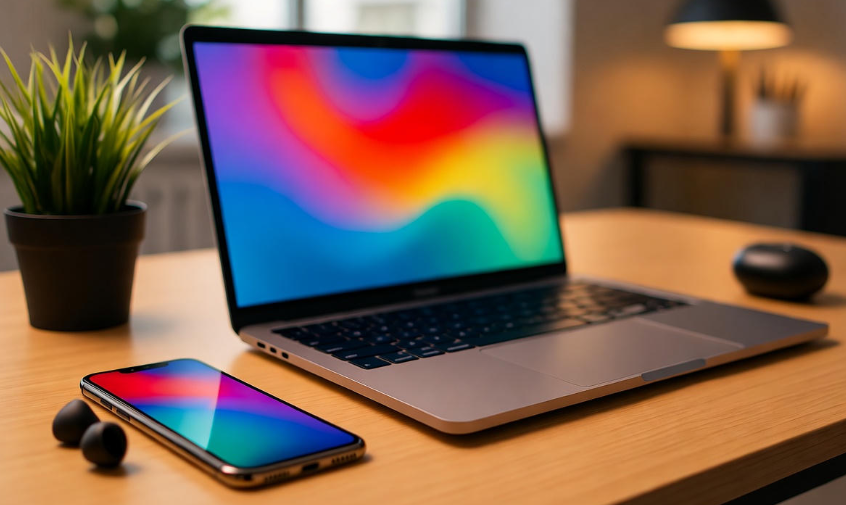Balancing freelancing with a full-time study or job can feel like juggling flaming torches while riding a unicycle. 🔥🎪 It’s not easy, but it’s completely possible if you plan smartly and set realistic boundaries. Freelancing offers flexibility, extra income, and skill growth—but without proper balance, it can quickly lead to burnout.
Understand Your Priorities First
Before taking on freelance work, ask yourself: What matters most—your grades, career growth, or freelance income? Your priorities will guide how much time and energy you can realistically invest in freelancing. Some people prefer to focus more on studies or work and treat freelancing as a side hustle, while others aim to grow their freelance business steadily.
Set Clear Goals
Setting clear goals is the secret sauce. 🎯 Ask yourself:
-
How many hours can I realistically dedicate to freelancing per week?
-
What kind of projects align with my skills and schedule?
-
Do I want freelancing for experience, extra cash, or long-term career growth?
Once you answer these, it becomes easier to filter opportunities that match your schedule and avoid overloading yourself.
Create a Structured Schedule
A proper schedule is your best friend when balancing multiple commitments. Divide your day into blocks for study, work, freelancing, and rest. A simple weekly table can help visualize this:
| Time | Monday | Tuesday | Wednesday | Thursday | Friday | Saturday | Sunday |
|---|---|---|---|---|---|---|---|
| 6 AM – 8 AM | Study | Study | Study | Study | Study | Freelance | Freelance |
| 9 AM – 5 PM | Full-time Job / Classes | Full-time Job / Classes | Full-time Job / Classes | Full-time Job / Classes | Full-time Job / Classes | Freelance | Freelance |
| 6 PM – 8 PM | Freelance | Freelance | Freelance | Freelance | Freelance | Rest / Personal | Rest / Personal |
| 8 PM – 10 PM | Rest / Leisure | Rest / Leisure | Rest / Leisure | Rest / Leisure | Rest / Leisure | Study / Planning | Study / Planning |
You can adjust the timing according to your own commitments, but this kind of structure helps ensure you don’t neglect any important part of your life.
Learn to Say No
One of the hardest but most essential skills in freelancing is saying no. 😅 Not every project is worth your time, especially if it conflicts with study or work deadlines. Saying no doesn’t mean missing opportunities—it means protecting your energy for what truly matters.
Use Productivity Tools
Technology can be a lifesaver. Use tools to stay organized and reduce mental load:
-
Trello or Asana: For task management.
-
Google Calendar: For scheduling deadlines and blocks.
-
Focus apps (Forest, Pomodoro timers): For distraction-free work.
-
Time-tracking apps (Toggl, Clockify): To monitor freelance hours efficiently.
Batch Tasks When Possible
Batching similar tasks together can save time and mental energy. For instance:
-
Reply to all client messages in one sitting.
-
Design multiple graphics at once instead of switching between projects.
-
Reserve certain evenings for research, writing, or revisions.
This helps you maintain focus and reduces the stress of constantly switching gears.
Communicate Transparently with Clients
Always be honest about your availability. Freelancers who overpromise often burn out fast. Let clients know your schedule, and don’t hesitate to provide realistic deadlines. A client who respects your time is much better than one who constantly pushes for unrealistic results.
Take Care of Your Mental and Physical Health
Balancing freelancing and full-time responsibilities is demanding. 😴 Prioritize sleep, healthy meals, and short breaks. Even 10-minute walks or stretching sessions can improve your focus and energy levels. Neglecting your health will reduce productivity and enjoyment in both freelancing and your primary work or study.
Learn Time-Efficient Skills
Focus on freelancing skills that offer maximum results with minimum time investment. For example:
-
Writing, editing, or proofreading
-
Graphic design templates instead of fully custom work
-
Social media management using scheduling tools
Avoid skill sets that demand long hours if your goal is to maintain balance.
Combine Learning and Freelancing
Whenever possible, align freelance projects with your study or work. For instance:
-
A marketing student can take freelance social media projects.
-
A computer science student can develop small apps for clients.
-
A business student can offer virtual assistance or data analysis.
This creates synergy, improves learning, and makes your freelance work feel less like an extra burden.

Set Weekly Reviews
Take 30 minutes at the end of each week to review:
-
What tasks were completed successfully? ✅
-
Where did you get stuck or feel overwhelmed? ⚠️
-
What can be improved next week? 🔄
This habit keeps you in control and prevents mistakes from piling up.
FAQs About Balancing Freelancing and Full-Time Commitments
Q: Can I manage freelancing and a full-time job at the same time?
A: Yes, but it requires strict scheduling and prioritization. Start small, take manageable projects, and gradually increase workload as you gain experience.
Q: How many hours per week should I freelance?
A: It depends on your primary commitments. 5–15 hours per week is ideal for students; 10–20 hours for working professionals with full-time jobs.
Q: How do I avoid burnout while freelancing?
A: Set boundaries, take regular breaks, maintain a healthy lifestyle, and don’t overload yourself with simultaneous projects.
Q: Can freelancing impact my academic or work performance?
A: It can, if not managed properly. That’s why scheduling, goal setting, and saying no to non-essential projects is critical.
Q: Is it worth freelancing while studying or working full-time?
A: Absolutely. It can provide financial freedom, practical experience, and a potential career path if approached strategically.
Final Thoughts
Balancing freelancing with full-time study or a job is not about doing more—it’s about doing what matters efficiently. Start small, set boundaries, and stay consistent. Remember, your health, studies, or primary job should always come first. Freelancing is a tool to supplement your growth, not a source of stress. With proper planning, communication, and self-care, you can enjoy the freedom and rewards of freelancing without compromising your primary responsibilities.
💡 Pro Tip: Always track your time, prioritize high-impact tasks, and allow yourself guilt-free breaks. Consistency beats overworking every single day.




